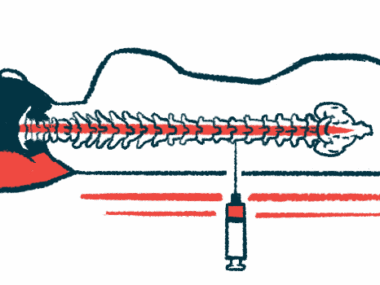Brainstorm taps Minaris to produce NurOwn for Phase 3b trial
Treatment to be tested in patients with mild to moderate ALS
Written by |

Brainstorm Cell Therapeutics is partnering with Minaris Advanced Therapies to manufacture NurOwn (debamestrocel), its investigational cell therapy for amyotrophic lateral sclerosis (ALS), for an upcoming Phase 3b clinical trial.
The companies signed a letter of intent outlining the collaboration, under which Minaris, a contract development and manufacturing organization, will produce NurOwn at its Allendale, New Jersey, plant.
Minaris specializes in cell and gene therapies. Alongside Pluri in Israel, it will help establish a “robust and flexible manufacturing network” to advance NurOwn into the planned Phase 3b clinical trial (NCT06973629), Brainstorm said.
“This partnership reflects our ongoing commitment to the ALS community and to advancing a therapy with the potential to meaningfully impact patients’ lives,” Chaim Lebovits, Brainstorm’s president and CEO, said in a company press release.
NurOwn is an experimental therapy for ALS intended to ease inflammation and support nerve cell health. It involves collecting a patient’s own mesenchymal stem cells, a type of self-renewing stem cell that can develop into various cell types, and maturing them into cells that produce neurotrophic factors, molecules that promote nerve cell health and survival. Once mature, the cells are injected into the fluid around the spinal cord, where they are expected to secrete high levels of neurotrophic factors to counteract neurodegeneration and potentially slow ALS progression.
Working with the FDA
NurOwn had mixed efficacy in previous clinical trials. In a Phase 2a study (NCT02017912), the therapy tended to slow functional decline, particularly for patients with rapidly progressing disease.
A subsequent Phase 3 trial (NCT03280056) did not show similar benefits in adults with rapidly progressing ALS, and failed to meet its main goal. However, a subgroup of patients with less advanced disease experienced slower disease progression, and the company argued that limitations in the scale used, the ALS Functional Rating Scale-Revised (ALSFRS-R), prevented benefits from being observed in people with more advanced disease.
While the Food and Drug Administration (FDA) initially refused to review a regulatory application due to insufficient evidence of NurOwn’s benefits, the company decided to file one over the agency’s objections.
An advisory committee again questioned the proposed limitations on the ALSFRS-R scale and said there was not enough data to support NurOwn’s effectiveness in ALS, leading the company to drop its application.
Since then, Brainstorm has worked with the regulatory agency to design the upcoming Phase 3b trial. Under a Special Protocol Assessment, the FDA reviewed the study design and deemed it adequate to support a future application.
The trial, called BCT-006-US, will involve about 200 people with mild to moderate ALS. They will be randomly selected to receive NurOwn or a placebo, administered once every eight weeks for about six months. After that, all participants will have the option to join an open-label extension part and receive three NurOwn injections over another six months.
Minaris will help Brainstorm create the individualized therapies that participants will receive in the trial.
“We are excited to support BrainStorm in the next phase of NurOwn development,” said Eytan Abraham, PhD, chief commercial and technology officer at Minaris. “Our team looks forward to applying our expertise in cell therapy manufacturing to enable BrainStorm to conduct its clinical trial to the highest standards and move efficiently to commercial manufacturing.”






